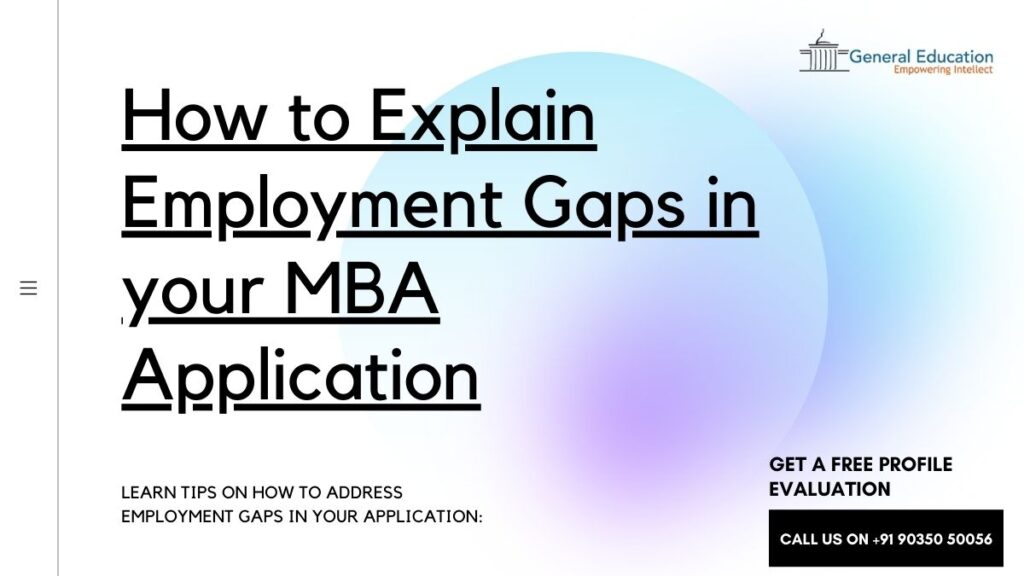
If you have ever experienced an employment gap in your MBA application, you are not alone. In fact, many MBA applicants have experienced an employment gap at some point in their careers. While employment gaps can be difficult to explain, they should not be viewed as unfavorable. Instead, think of them as an opportunity to show admissions committees that you are resilient and adaptable. Many MBA applicants believe that they need to have solid career growth in their professional career, getting a good number of promotions in their career. But it is quite different. Applicants occasionally get laid off and are unable to find a new job for a couple of months. Sometimes, personal reasons or physical illness and mental stress might force them to take a break from the workplace.
So in this article let’s discuss how to explain employment gaps in MBA applications.
To begin with, let us characterize what we mean by a job gap. The basic rule is that any gap of over 3 months of unemployed should be justified in your application. If the applicant’s job gap is less than three months, then it should be mentioned in the resume and not worry much about it.
In some cases, if an applicant has more than a four months job gap, then the applicant needs to explain the gap in their application. Some schools specifically ask in their application about any gaps the candidate has in their resume and the admission committee wants applicants to discuss what they did during the gap. Also, some B-Schools expect applicants to use optional essays to discuss gaps in their profile. The important aspect of reducing any concern about the gap is showing that the applicant used this time effectively. The applicant needs to add good examples which convey a sense of drive, initiative, or proactivity to the admission committee.
The main essay prompts, resume, and optional essay should focus on explaining gaps by citing solid examples where applicants have used their time for personal, intellectual, and professional growth. Applicants can discuss preparation for competitive exams or GMAT/GRE, preparing for professional certifications, or write about learning piano or any musical instrument, dance form, involvement in sports, or any form of passion in which applicants are involved.
If you have employment gaps in your MBA application, don’t fret! Many MBA programs are understanding of applicants who have taken time off for various reasons. Here are a few tips for how to address employment gaps in your application:
-Be honest: Explain why you took time off, what you did during that time, and how it has helped you in your career.
-Highlight what you learned: Discuss what you learned during your time off and how it will help you in business school and in your future career.
-Show your commitment: Demonstrate your commitment to your MBA studies by discussing your plans for after graduation.
– Be sure to address them in your essays or MBA application. Also, explain how you will contribute to the MBA program and what you hope to gain from it.